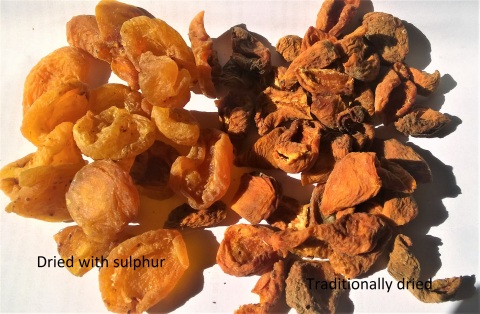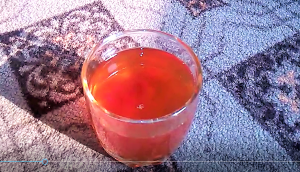Traditional Practice of drying apricot in Hunza:
Apricot is acknowledged for its health benefits. Especially the organic Hunza sun-dried apricot known as Battering locally, its kernel and oil has anti-cancer properties and people of Hunza are known for longevity (age up to 150 years) and no cancer cases. Traditionally the women of Hunza pick fresh a well ripped apricot from the trees and dried on circular frames on the roof of houses in the sun and then stored it a cotton cloth bags. Then apricot is cut opened by hands to separate the apricot kernel which is later dried and used for making apricot oil, grounded to make flour and used for several traditional dishes that includes hani’e chamik, Chamuriki, Giyaling and Bairikuch while the hard shell of seed was stored and used in winter for making fire that last longs for hours and keeps the traditional room called “Ha” warm. The dried apricot is used in winters for traditional drink known as Chamus (the apricot juice) and soup which is locally known as battering dawdo. Sun-dried apricot has the same flavor as original taste of the fruit and it’s always brown in color, they are dried open in the sun so it’s not unusual to find dust on it but not too much of it .
Changes in traditional Practice of drying apricot in Hunza:
Since the apricot was dried for self-use at homes of Hunza ,the traditional method was practiced for a long time until they came up with the idea of making it commercially available and thus the practices changed for increasing the yield and hence the color ,taste and texture of the product changed. The real taste that was sweet is now a bit tangy and the brown color has changed to more yellowish and the original hard texture has changed and we find them softer and the storage has shifted from cotton bags to plastic bags.
The new method of drying apricot includes, passing the cut opened apricots on the races to Sulphur fumes for few minutes, which prevents them from insect invasion which results in more unspoiled product and increased shelf life.
Difference between traditionally dried and dried with Sulphur:


